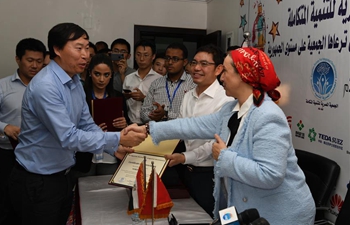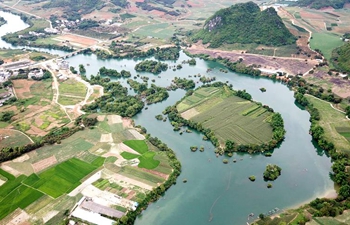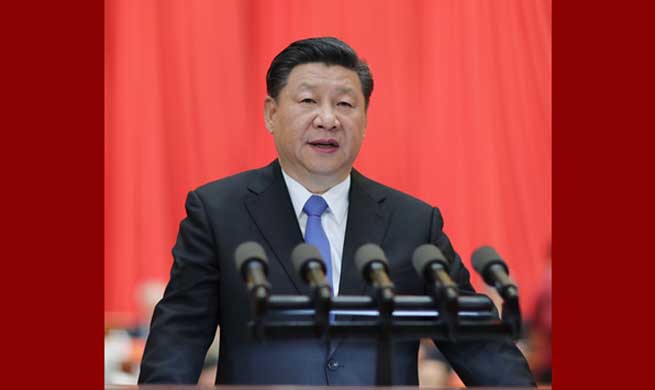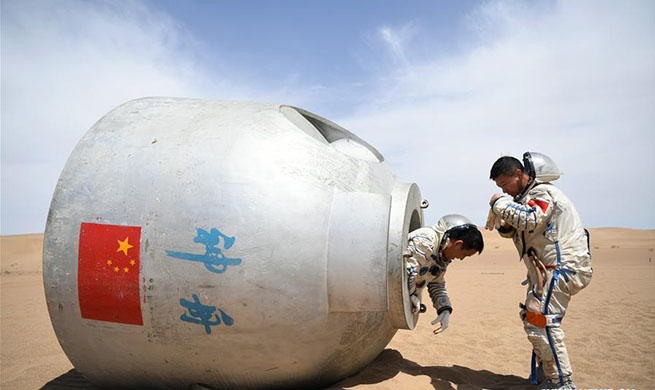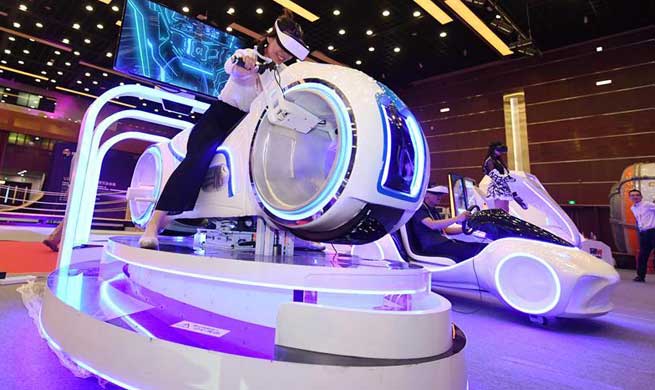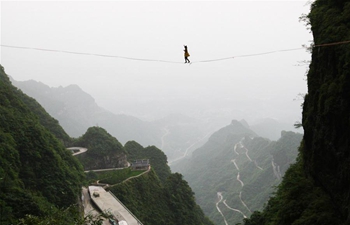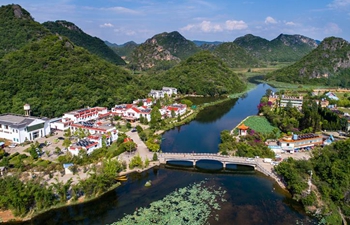BEIJING, May 28 (Xinhua) -- The deepest borehole to be drilled for scientific purposes by Asians - the first to penetrate a continental layer of strata from the earth's Cretaceous period - was completed in northeastern China on May 26, according to China Daily on Monday.
It reached a depth of 7,018 meters.
The project, Songke 2, in Anda, Heilongjiang province, started in April 2014, led by the China Geological Survey in cooperation with about 20 organizations, said the newspaper.
The borehole is located in the Songliao Basin, one of the largest continental sedimentary basins in the world. It holds China's most important reserves of oil and natural gas.
"The success of the project will provide key technologies and equipment for exploration and experimental research deep within the earth," Cheng Qiuming, secretary-general of the International Union of Geological Sciences, was quoted by the newspaper as saying. "It will also open a new space for clean energy prospecting in Songliao Basin."
Li Yuyan, chief engineer of Heilongjiang's Department of Land and Resources, said these technical achievements have been recognized both at home and abroad.
Wang Chengshan, an academician of the Chinese Academy of Sciences and chief scientist of the project, said the drilling project achieved the first borehole in the world that goes through the continental stratum of the Cretaceous period, which has shown China's deep-earth capabilities.
The Kola borehole in northwestern Russia remains the deepest in the world, the newspaper said. It reached a depth of 12,262 meters in 1989.







